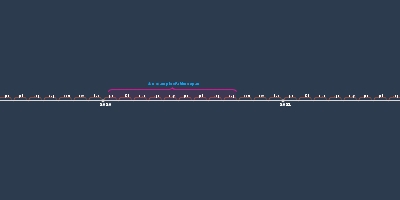Harpagus (aka Oibaras, aka Ugbaru, aka Darius the Mede), King of the Medes (1 set 550 ano antes da era comum – 12 out 539 ano antes da era comum)
Descrição:
Ugbaru is Darius the Mede (539/538 BCE) by Gerard GertouxHarpagus, though he never had the title of king of the Medes because of Cyrus, the king in title, had the function. Ancient authors knew what they were not misled: Strabo (Geography VI:1) specifies that Harpagus was the "lieutenant of Cyrus" and, according to Diodorus (Historical Library IX:35:1), "Harpagus was appointed commander of the sea by Cyrus and was honored by him. Herodotus' account illustrates the role played by Harpagus until the capture of Babylon
According to Herodotus, Harpagus could have been an independent Median king, but preferred to be a "king" vassal of the Persians. Ctesias confirms Herodotus' account, except on two points: Harpagus was called Oibaras and the latter was not Median but Persian: When Cyrus questioned the man he replied that he was a Persian named Oibaras which greatly pleased him because Oibaras means 'bringer of good news' in Greek (...) Cyrus and his father marshaled the army and appointed Oibaras as general (...) Cyrus and Oibaras encouraged them as they entered the city because they killed more of the enemy (...) Much happened in the meantime until Cyrus entered the tent, sat upon the throne of Astyages, and took up his scepter. The Persians shouted their approval while Oibaras coronated him and said, "You are more worthy to wear this than Astyages because a god has bestowed it upon you for your virtue and the Persians are more worthy to rule over the Medes." Under the command of Oibaras, who appointed the officers (Persica §§13,32,36,45).
Concerning the fall of Babylon, Josephus says: When he [Nabonidus] was come to the 17th year of his reign, Cyrus came out of Persia with a great army; and having already conquered all the rest of Asia, he came hastily to Babylonia. When Nabonidus perceived he was coming to attack him, he met him with his forces, and joining battle with him was beaten, and fled away with a few of his troops with him, and was shut up within the city Borsippa. Hereupon Cyrus took Babylon, and gave order that the outer walls of the city should be demolished, because the city had proved very troublesome to him, and cost him a great deal of pains to take it. He then marched away to Borsippa, to besiege Nabonidus; but as Nabonidus did not sustain the siege, but delivered himself into his hands, he was at first kindly used by Cyrus, who gave him Carmania, as a place for him to inhabit in, but sent him out of Babylonia. Accordingly Nabonidus spent the rest of his time in that country, and there died (Against Apion I:150- 153). The city were taken by Cyrus, the king of Persia, who fought against him; for it was Belshazzar, under whom Babylon was taken, when he had reigned 17 years (...) but when Babylon was taken by Darius, and when he, with his kinsman Cyrus, had put an end to the dominion of the Babylonians, he was 62 years old. He was the son of Astyages [the successor of Astyages, not the son, was Harpagus], and had another name among the Greeks (Jewish Antiquities X:247-249). Taking account of Herodotus, fairly reliable chronologically, Cyrus came to Babylon (in 539 BCE) in his 20th year of reign, accompanied by his Median vassal, Harpagus (Oibaras), who was he in his 11th year of "reign" after the removal of Astyages.
Adicionado na linha do tempo:
Data:
1 set 550 ano antes da era comum
12 out 539 ano antes da era comum
~ 10 years
